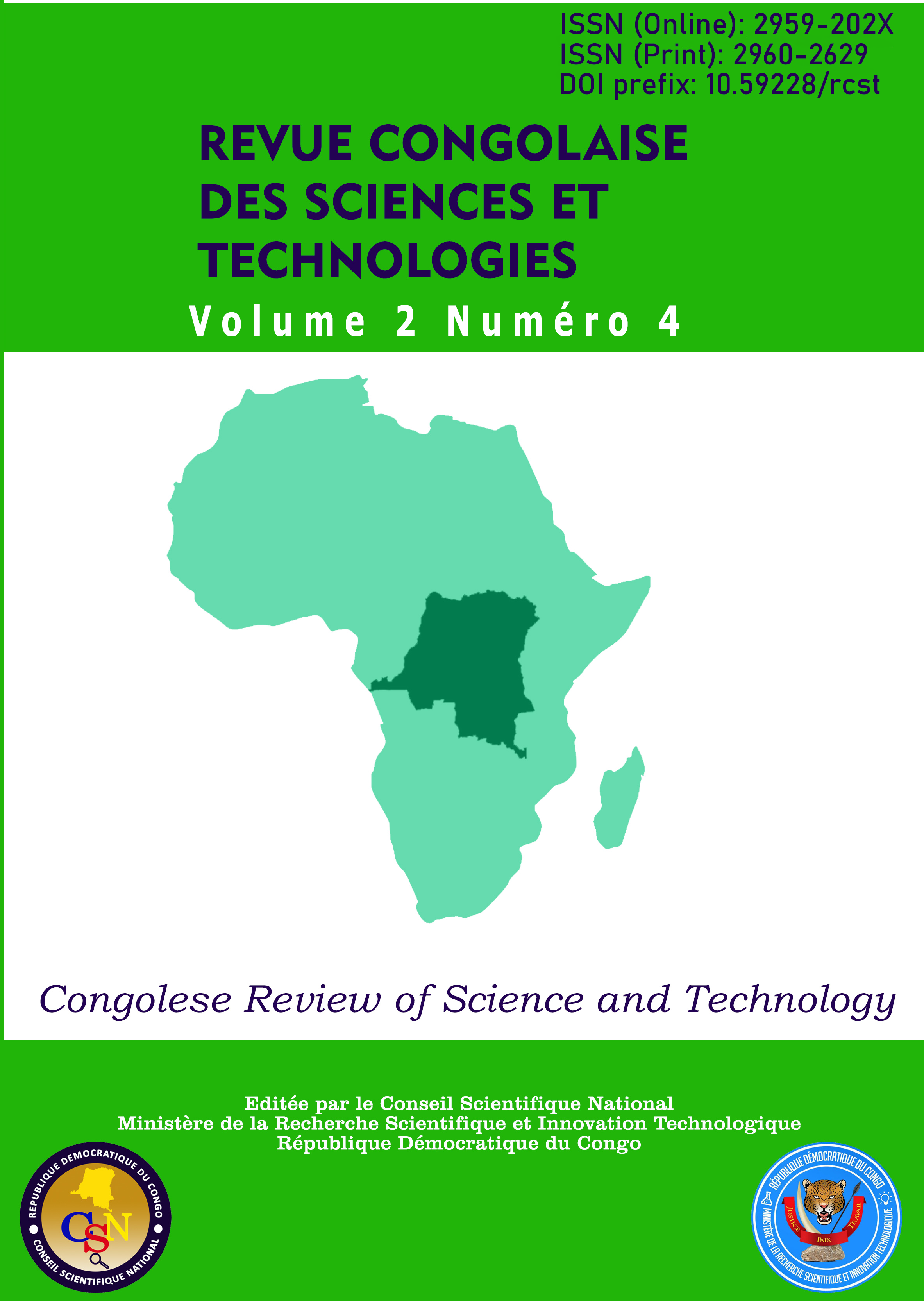Fate of Africa faced with the proliferation of development models: Critical analysis of the Lagos Action Plan and the New Partnership for Africa's Development
Main Article Content
Abstract
Since the end of World War II, development has always been a major question. For example, in 1948 and 1949, the United Nations will hold meetings and resolutions on the problem of underdevelopment. At the Batoeng Conferences in 1955 and 1961, where third-world countries gathered, the international organizations expressed their greatest concern to avoid irreversible deterioration in the situation of poor countries.These organizations decided to dedicate the period 1960 to 1970 to the “decade of development”. Which are the different internal and external constraints at the bottom of the lack of emergence in Africa? The objective of our study is to seize the whole company, to understand the causes of failure, and to identify the various strategies of development models proposed for the departure of the African continent.We are using the comparative method and complementing it with documentary technology. In the final analysis, the examination of concrete facts revealed that the proposed solutions were not well suited to the unique circumstances of Africa. The absence of a holistic understanding of Africa's population, coupled with the insufficient local capital and political commitment among African leaders, shaped these models as autonomous and self-directed. This is particularly disheartening, considering that strategies rooted in Western approaches proved inadequate in meeting the pressing needs of Africans, spanning areas such as food security, education, community health, basic socio-economic infrastructure, and road development.
Article Details
Section

This work is licensed under a Creative Commons Attribution-NonCommercial-ShareAlike 4.0 International License.
References
Amin. (1986). La déconnection pour sortir d’un système mondial. Paris, La Découverte.
Badie, B. et Smouts, M.C. (1999). Le retournement du monde. Sociologie de la scène internationale (3ème éd). Paris, Presses Universitaires des Sciences Politiques.
Bongeli, E. (1997). Sociologie et sociologues Africains. Pour une recherche sociale citoyenne au Congo-Kinshasa. Paris, L'Harmattan.
CNUCED. (2001). Bilan, perspectives et choix des politiques économiques. Genève, Nations Unies.
CNUCED. (2003). Résultats commerciaux et dépendance à l’égard des produits de bases. Genève, Nations-Unies.
CRID. (1988). La dette ou la vie. Centre Euro-Tiers Monde.
Deffour. (1994). Le développement en Afrique centrale : Théorie et essai critique. Bukavu, Bandari.
Gorbatchev, M. (1987). La Perostroïka, vues neuves sur notre pays et monde. Paris, Flammarion.
Jaillordon, E. & Roussillon, D. (2006). Outils pour la recherche juridique, méthodologie de la thèse de doctorat et du mémoire de master en droit. Paris, Edition des archives contemporaines.
Kadony, K. (2007). Une introduction aux relations Internationales africaines. Paris, L’Harmattan.
Kahnert, F. (1969). L’intégration économique entre pays en voie de développement. Paris, OCDE.
Koenarrad, V. (1987). L’auto-développement, un défi posé aux organisations non-gouvernementales. Paris, L'Harmattan.
Kodjo, E. (1988). Quelle Afrique en l’an 2000 ? Afrique contemporaine, 2ème trim(146), 11.
Koli, E.M. & Mononi, A.N. (1988). Organisation de l’Unite Africaine, 20 ans après. des espoirs déçus ? Kinshasa.
Mulumbati, N.A. (2006). Introduction à la science politique. Lubumbashi, Editions Africa.
Mwayila, T. (2012). Regionalisme et problèmes d’intégration économique. Paris, L’Harmattan.
NEPAD. (2001). Document sur le Nouveau Partenariat pour le Développement de l’Afrique.
Nguway, K. (2007). Une introduction aux relations internationales africaines. Paris, L’Harmattan.
Norro, M. (1994). Economie africaine : Analyse économique de l’Afrique subsaharienne. Bruxelles, édition de Boeck Université.
OUA. (1981). Plan d’action de Lagos pour le Développement économique de l’Afrique 1990-2000. Genève, Institut International d’Etudes Sociales.
Pham, N.H. (1984). Sciences Sociales et Approches Multidimensionnelles du Développement Endogène et Centré sur l’homme. Paris, UNESCO.
Smith, S. (2003). Négrologie, pourquoi l’Afrique meurt-elle ? Paris, Calman-Léy.
Toussaint, E. (1999). Briser la spirale infernale de la dette. Archives du monde diplomatique, 11.

